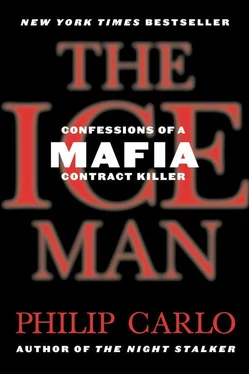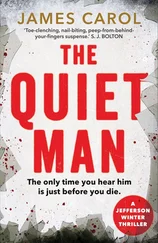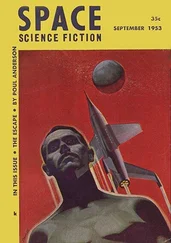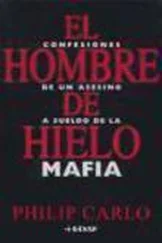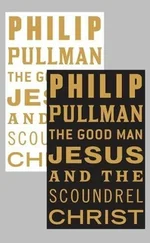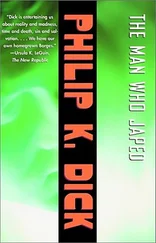Content, Richard soon left.
Back in Chicago, one of De Peti’s strippers discovered his body. The police were summoned. They questioned everyone in the club, got a vague description of a big man seen leaving the office.
Another unsolved homicide.
12. Mob Guys and Crooked Cops
His name was Jim O’Brian. He was a large, burly, red-faced Irishman, a former police captain out of Hoboken. He was as crooked as a figure-eight pretzel, worked intimately with the De Cavalcante crime family. He’d do anything to turn a buck—pimp women, deal drugs, sell hot merchandise. He, like most everyone in New Jersey crime circles, knew about Richard Kuklinski, knew how reliable he was, that he was the best bagman in Jersey; how ruthless he could be when and if the job called for violence. O’Brian approached Richard in a Hoboken bar and asked him if he’d pick up a suitcase for him in Los Angeles.
“You interested?” O’Brian asked.
“Sure, if the price is worth my time,” said Richard. He did not usually like cops, crooked or otherwise. He felt they could not be trusted, that they were bullies with badges and guns, but he knew O’Brian worked with the family he was associated with.
O’Brian said, “It’ll take you no longer than a day and I’ll pay you five large and all expenses.”
“Sure, I’ll go,” Richard said, and the next morning he was in the first-class section of an American Airlines flight to LA. Richard very much enjoyed traveling in first class. It made him feel successful, that he’d made a notable step up in the world.
Amused, he looked at the other men in the section, knowing they were all civilians, thinking how surprised they’d be if they knew what he really did—that he regularly killed people and enjoyed doing it. Smiling stewards served him a lovely lunch and free drinks, and he soon fell asleep.
Richard took a cab from LAX straight to a fancy hotel on the famous Sunset Boulevard. He checked in under a false name, went upstairs to his room, and was admiring the sweeping view of LA when there was a soft knock on the door. He opened it. Two of the shiftiest-looking men he’d ever seen, one resembling a rat, the other a ferret, stood there. “You Rich?” Rat Face asked.
“I am. Come on in.”
They walked into the room, Ferret Face carrying a suitcase.
“That for me?” Richard asked, friendly enough, but not liking either of these men.
“Yeah, that’s for you,” Ferret Face said. “You got any ID?”
“Do you have any ID?” Richard asked.
“No.”
“Then why should I?” Richard wanted to know.
They all stared at one another. Uncomfortable seconds slipped by. Richard reached inside his jacket and pulled out a short-barreled pistol.
“This is my ID. It’s called .357,” Richard said. “And in this pocket, I’ve got some more ID—it’s called .38,” Richard added, showing them both his guns, all solemn-faced, staring at them, deadpan.
“Okay,” Rat Face said, and he took the black case from Ferret Face and handed it to Richard; and they soon left. Good riddance. Richard did not even try to see what was in the suitcase. It was none of his business. His business was getting it safely back to O’Brian in Hoboken. He had a nice lunch in the hotel restaurant, thought he saw John Wayne with some pretty women wearing real short dresses, and was soon on his way back to LAX.
In those days there was no screening for drugs or weapons and Richard was able to walk onto the plane without being questioned or challenged. Without incident he made it back to Hoboken, delivered the suitcase, was paid, and as far as Richard was concerned, it was a done deal.
However, some weeks later he found out that there had been a kilo of heroin in the suitcase. He was furious. If he had been busted with it, he’d have gone to jail, no doubt for a long time. He kept his anger to himself, but when the right time came he did get even with O’Brian—he killed him by shooting him in the head, and got rid of his body in South Jersey, not far from the car salesman whose head he gave to Genovese; and no one had any idea that O’Brian was done in for manipulating Richard Kuklinski, putting his life on the line without having the courtesy of even telling him. Richard, of course, didn’t say a word about what he’d done… not even to his mentor and rabbi, Carmine Genovese. The way Richard saw it, a crooked cop had gotten exactly what he deserved, and he was only too happy to serve it up.
An unusual piece of work now came Richard’s way. A mob boss named Arthur De Gillio had to go. He was stealing from his boss, the head of the family, and a death contract was issued. Carmine tapped Richard to do the job, called him to his home, solemnly sat him down, said: “This here is the most important piece of work I’ve given you. This guy is a boss. He’s gotta die. You are doing the job. There’s a special requirement with this job—you need to take his credit cards, you understand, and after you kill him, you stuff the credit cards up his ass.”
“You’re kidding,” said Richard.
“No. That’s the way it has to be. That’s what the skipper wants. And before you kill him, make him suffer and make sure he knows why he’s dying and what you’re gonna do,” Carmine said, his meatball-shaped face all serious.
“You’re kidding,” Richard repeated.
“I look like I’m kiddin’?”
“No.”
“And so?”
“Okay, no problem,” Richard said, thinking these Italians were a crazy lot, had all kinds of nutty rules and regulations, but his job was not to question the ways of the Mafia; his job was to carry out orders. End of story.
“This will be tricky—and dangerous. He always has bodyguards around,” Genovese said, and gave Richard the mark’s home and business addresses. “You do this job good, it’ll be a big feather in your cap, okay?”
“Okay.”
“Don’t hurry it. Do it right. Take’a your time. Make sure no one makes you. If they do, it’ll come right back to me—you understand?”
“I understand.”
“You cap anyone that gets in your way—no matter who.”
“Okay,” Richard said, and soon left.
This, he knew, was a very important piece of work, and he felt honored to be given it; he was moving up in the world. It would put him at the front of the line. It was like an actor being given the role of his life… a part that would surely make him a star, a bright light in the galaxy of organized crime.
Richard plotted this murder meticulously for ten days. As Carmine had said, De Gillio always had bodyguards around, but he had a girlfriend over in a residential area in Montclair, and when he went there, every few days, he did so with only a driver-gofer, a skinny kid who was his nephew. The girlfriend lived in a quiet, two-story yellow building with a parking lot off to the left. The nephew waited outside, in a quiet corner of the parking lot, near a grated wood fence, as De Gillio, a heavyset man who had a large belly and short bandy legs, went inside, did the job with his girlfriend, and came out. He wasn’t inside more than an hour—an afternoon quickie. On the day Richard planned to move, he trailed De Gillio to the Montclair apartment. De Gillio got out of the car and waddled inside. Richard waited fifteen minutes, walked up to the nephew, and without a word shot him in the side of the head with a .22 onto which was attached a suppressor, better known as a silencer. The small-caliber bullet instantly made mush of the driver’s brain, and he was dead before he even knew he’d been shot.
Casually, slowly, Richard walked back to his car, got in, pulled it up near De Gillio’s car, opened his trunk, and began to change his tire, moving slowly, taking his time, not drawing any suspicion to himself, just another guy with a flat in a mostly empty parking lot. Almost like clockwork, De Gillio came waddling out of the house, apelike, not taking any particular notice of the guy with a flat. When he reached his car, however, his face creased with anger because he thought his nephew had fallen asleep. Richard now began walking toward him. As Richard neared De Gillio, he pulled out the .22 with the silencer, an assassin’s weapon that immediately stopped De Gillio.
Читать дальше
